With that orange haired brute of a president supposedly ushered out of the White House with moralising delight, the Biden administration was all keen to turn over a new leaf. There would be more diplomacy, and still more diplomacy. There would be a more humanitarian approach to refugees and asylum seekers – forget, he claimed, the Border Wall. Kindness would come over border officials and guards of the imperium.
Instead, we have had secret diplomacy culminating in the trilateral security pact of AUKUS, one reached unbeknownst to allies in Europe, Asia and the Indo-Pacific. And we have had a particularly ugly spectacle concerning Haitian refugees, with many being bundled into planes to be sent back to their country, having been taken from the burgeoning border camp around a bridge in Del Rio, Texas.
Having been blooded in the mass evacuation exercise from Afghanistan, the Biden administration was now doing the reverse in an exercise of expulsion, promising the deportation of 14,000 Haitians over a period of three weeks. The jarring contrast was not lost on Nicole Melaku, executive director of the National Partnership for New Americans. “When you contrast the welcome mat that was rolled out for many Afghan refugees who are deserving – of course – of our support and resettlement, with the deplorable treatment of Black migrants on our home soil, it is just an unfathomable contrast.”
At the Rio Grande River, US border agents, crowned by cowboy hats and sporting a thuggish élan, left a remarkable impression of ugliness by their free use of reins in pushing migrants back across the river. Many members of their quarry had made the journey to obtain food. “I can’t imagine what context would make that appropriate,” White House spokeswoman Jen Psaki expressed with the sort of wonder that is becoming her hallmark style. “But I don’t have additional details and certainly I don’t think anyone seeing that footage would think it was acceptable or appropriate.”
Political atmosphere and atmospherics is everything, and while Psaki might be puzzled, her colleagues in the Biden administration are happy to maintain a firm line against mischievous incursions. The US Secretary of Homeland Security Alejandro N. Mayorkas has been firm. “If you come to the United States illegally,” he declared on September 20, “you will be returned. Your journey will not succeed, and you will be endangering your life and your family’s life.”
Such conduct did not sit well with the May announcement by Secretary Mayorkas that Haiti had been designated for Temporary Protection Status (TPS) for 18 months. “Haiti is currently experiencing serious security concerns, social unrest, an increase in human rights abuses, crippling poverty, and lack of basic resources, which are exacerbated by the COVID-19 pandemic,” Mayorkas stated at the time.
Despite that official characterisation, the administration has taken comfort in using Title 42 of the United States code Section 265, a public health statute freely employed by the Trump administration, to prohibit “the introduction of persons or property, in whole or in part, from Mexico and Canada” into the US for fears of pandemic spread. The liberal use of the statue has received judicial excoriation, with US District Judge Emmet Sullivan claiming it “collectively deprived” asylum seekers and refugees facing “real threats of violence and persecution” of “certain statutory procedures”.
Public health officials have also been disconcerted. As Dr Ronald Waldman of the human rights group Doctors of the World remarks, “The prohibition for crossing the border has been applied selectively to asylum seekers”. It certainly has not been applied to students and those doing business.
In a sober assessment of Biden’s report card so far, Natasha Lennard of The Intercept points out that the Trump administration’s use of the law saw half a million people removed. During the short tenure of the Biden administration, the current number stands at 700,000. Over the course of January, 62,530 migrants were expelled according to the figures of Customs and Border Protection. For the month of April, it was 110,846.
In a resounding judgment of Biden’s policy towards Haitians and Haiti in general, Washington’s envoy to the country, Daniel Foote, has resigned. His September 22 letter to US Secretary of State Antony Blinken was an effort of extrication from “the United States inhumane, counterproductive decision to deport thousands of Haitian refugees and illegal immigrants to Haiti, a country where American officials are confined to secure compounds because of the danger posed by armed gangs in control of daily life.”
Foote also took a stab at a long standing practice of US foreign policy: that habitual meddling in the affairs of a country that had “consistently produced catastrophic results”. The de facto, unelected prime minister Ariel Henry had received yet “another public statement of support as interim leader of Haiti” from the US embassy, among others. They had continued touting “his ‘political agreement’ over another broader, earlier accord shepherded by civil society.” The now resigned envoy, sniping at this policy of backing “winners”, stated the essential heresy of the imperium: What Haitians needed was “the opportunity to chart their own course, without international puppeteering and favoured candidates, but with genuine support for the cause.”
In response to the resignation, US State Department spokesman Ned Price was a picture of regret and hollow advice. “It is unfortunate that, instead of participating in a solutions-oriented policy process, Special Envoy Foote has both resigned and mischaracterised the circumstances.”
Psaki was icily dismissive. “Special Envoy Foote had ample opportunity to raise concerns about immigration during his tenure. He never once did so.” Such bitchiness is a nice summation of the Biden administration so far: policies that continue to furnish us the acceptable face of Trumpism.
The post Trumpism with a Biden Face: US Haitian Policy first appeared on Dissident Voice.This post was originally published on Dissident Voice.
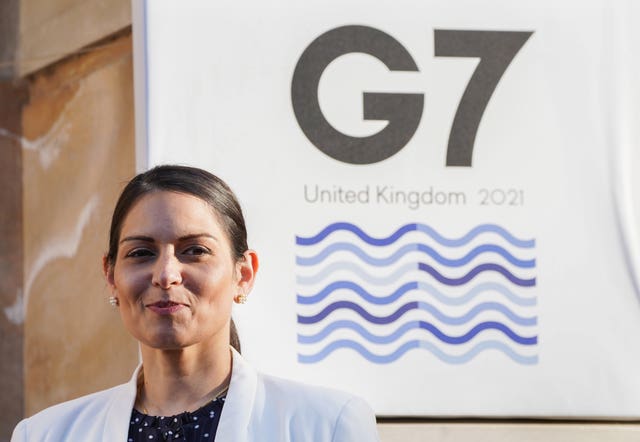
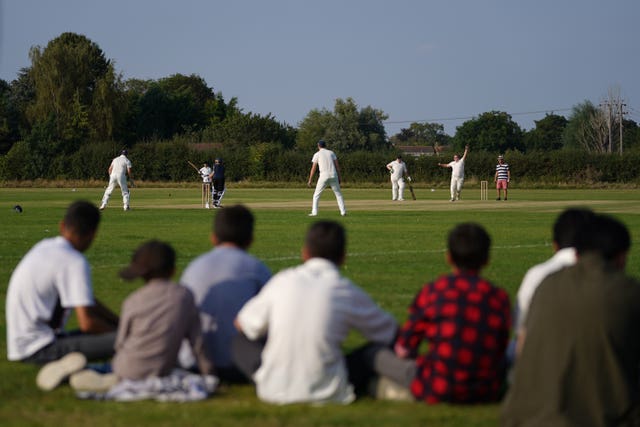
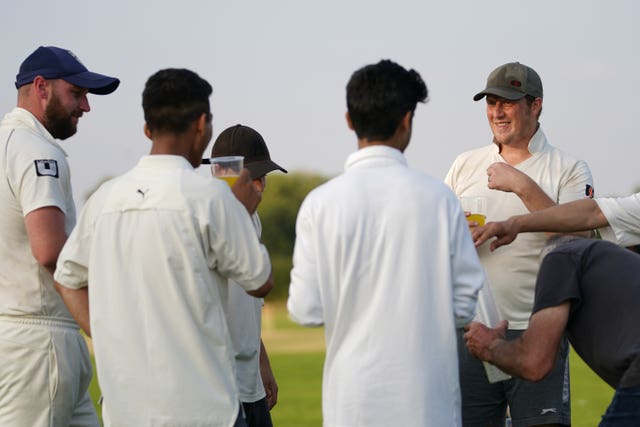


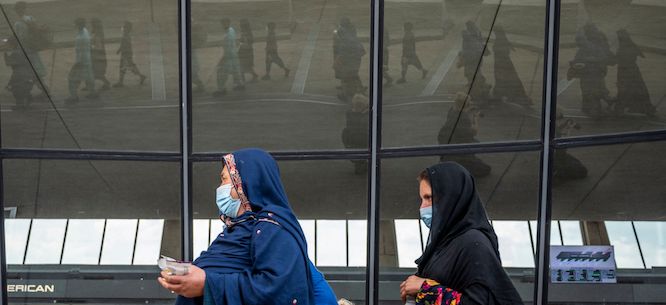

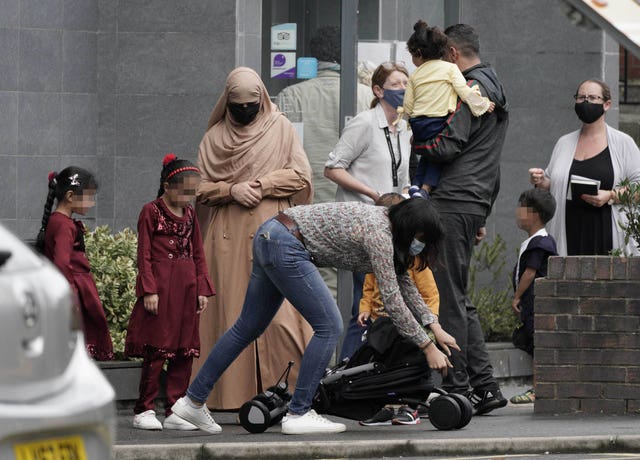
 — a small nation of roughly 9 million people — is taking in more Afghan refugees than the US, Canada, the UK, France and Australia combined.
— a small nation of roughly 9 million people — is taking in more Afghan refugees than the US, Canada, the UK, France and Australia combined.

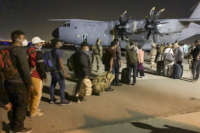

 (@RefugeeAction)
(@RefugeeAction)